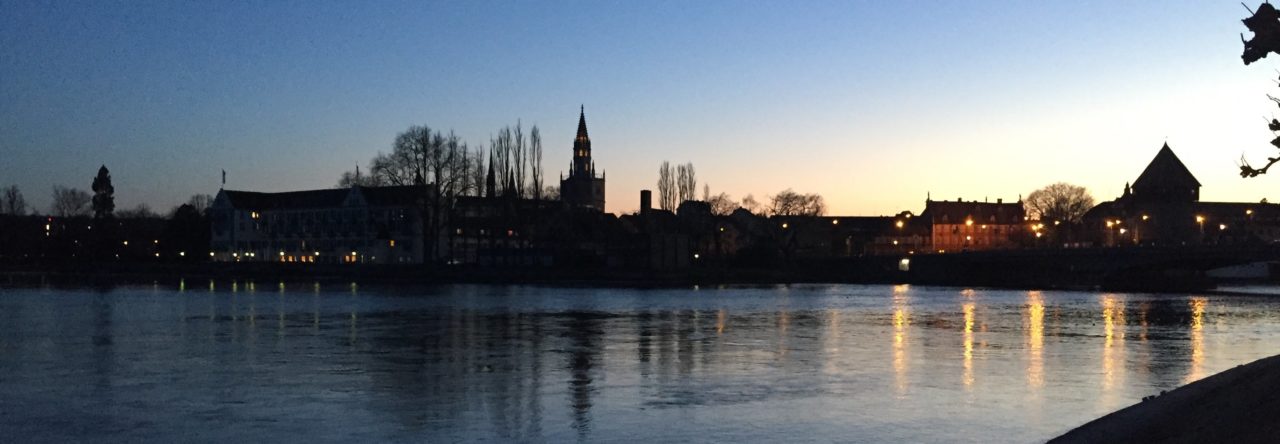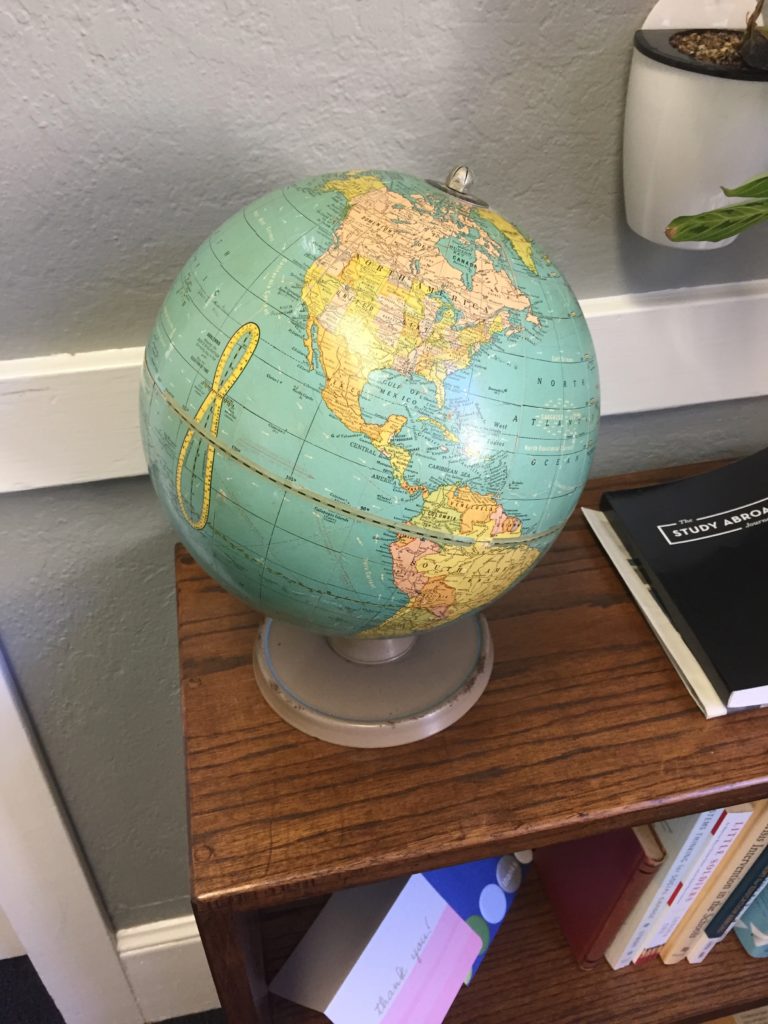As a Career Services advisor, the debate about
the direction of US higher education looms over my work: student success is
determined not just by whether or not students are employed in some capacity after
graduation, but how soon they are employed after graduation, how closely their
first job aligns with their degree, and how much they begin earning annually.
Skills make students employable in the first
place. Hard skills, soft skills, technical skills, super skills – whatever you
want to call them. And many of these skills are acquired through participation
in student clubs, student athletics, internships, coops, and part-time jobs.
The whole debate focuses on whether or not
attending class actually contributes to students’ skill development. In an era
where grade inflation has made it easier to get an “A” and the price of higher
ed is all too high, it makes sense to be asking these questions.
Here’s what I don’t understand: Why is there a
crusade against the liberal arts?
The story of ROI…
One reason is for return of investment. The
conversation among those working on higher ed policy or within the system seems
to evade the idea of changing the system we currently have, as if we can’t
challenge the free market model that higher ed has been pushed into. “It’s just
the way it is,” seems to be the mindset. Meanwhile, the US public is stuck in
this other mindset that higher education institutions are all at fault for the
price of higher ed – most people aren’t aware of the nuances. Really, our state
and federal funding of higher education has decreased
since the Recession recovering only slightly and, in some cases like
Alaska, worsening.
Instead of tackling the problem of costs, the conversation
is shifting towards something like this quote from a Business
Insider article ranking the “25 Most Valuable College Majors”: “The cost of college is higher than ever, making it important to pick a major that will be
valuable in the long run, with a high likelihood of post-graduation employment
and a decent expected salary.”
From the perspective of a student who needs to
make these decisions now, this line of thinking makes sense. But it concerns me
that some of our thought leaders are encouraging this direction rather than
digging deeper and looking hard at the systemic problems in place.
Forgetting to analyze systemic issues, long-term.
This is what I fear happens when we devalue the humanities and social sciences.
Degrees in history, sociology, literature, etc.,
are not statistically likely to pay you as much as a degree in computer science
or engineering (comparable to the mean for general “business”, according to the
National Association for Colleges and Employers [NACE] Winter
2019 Salary Survey). The idea is that because college is so expensive, you
should put your money towards an education that will properly prepare you for a
job with a starting salary higher than $55 or 60k – that way, you might
actually be able to pay off your student loans by the time you’re ready to
start paying for your kid’s higher education.
When this argument is made in the context of
ROI, I wonder who is paying attention to the cost to provide resources for
teaching these highly desirable subjects: the price of tuition is partially based
on what resources you provide students at your institution. It is not as
expensive for institutions to teach courses in the humanities or many of the
social sciences. Major-specific, academic-related expenses can be found in the physical
arts and sciences (this Polish
finances site found a few pretty expensive programs that sit in these
categories).
Physical arts aren’t the problem, either.
Because they are costly, they are generally pricier programs and are more
selective to form smaller cohorts. You can compare the number of music majors in the US to the
number of engineering
majors in the US, and see the rate at which those numbers are declining or
increasing. We don’t see a push for musicians and filmmakers in the US like we
see the push for primary care physicians and engineers.
It’s not to say that we don’t need engineers or
primary care physicians, because we obviously do. It’s for the higher demand
that institutions such as NYU
are making movements to offer medical degrees for free.
I understand the push to make med school more
affordable for people, and I fully agree with it. But this model is not going
to push into the liberal arts, which means that the high cost of a Bachelor’s
degree in history won’t decline, causing the number of history majors to continue
to decline, for example.
Meanwhile, the push for higher education to
prove its delivery of skills-competent graduates is becoming muddled. There are
companies seeking hard, practical skills, but these skills need to be
constantly updated every 6 years, according to an article
published in NACE (2018). Higher education can offer methods for students
to learn some of these skills, but the focus should be the “soft skills,”
competencies such as critical thinking and problem-solving. These skills are improved
every day with more and more practice. They take time and reflection to
develop, making 3-4 year obtaining a Bachelor degree a great time to enhance these
skills, preparing students for the future workplace where AI is likely to take
over more repetitive tasks.
These “soft skills” are at the core of the
liberal arts, but students often get lost in the concepts of developing the
ability to code or using advanced tools in an excel spreadsheet (certainly
necessary, but not the only necessary thing to learn while at college!).
What else do we need to consider as we look at
higher education from a systemic point of view?
Not everyone needs to, or should, go to college.
Furthermore, we push college on some all too soon.
Not everyone thrives from studying all the
time, or from research. But flip that around – some people do. One is not
better than the other, yet we continue to think otherwise in the US. There are
still plenty of parents who think that their children should only aspire to Ivy
League schools (which makes our Admissions processes chaotic), and college is
still seen as the most promising means of moving up in class.
Here are the challenges that face us in the US
from this line of thinking:
First and foremost, this is a class issue.
If we could fundamentally change our culture to recognize the value in “blue-collar”
as much as we do in “white-collar,” and get rid of those definitions, we wouldn’t
push college on kids at all, or at least as early.
Second, we push college on people too soon.
Some students are not ready to commit to a major at the age of 19. Just last
night, a friend of mine said if she could go back and do her Bachelor’s degree
again, she would take a completely different path. I have met plenty of
brilliant people who were not ready to continue sitting in a classroom after
high school. They needed to have some work experience and travel – see other
aspects of life and the world outside of school – before recognizing what their
passion was.
(And this is why I am increasingly inspired and
enthralled by the concept of gap years… which I hope will be a topic I write
about soon enough.)
Third, this all culminates into a horrible college admissions process where we see parents cheating the system, small liberal arts colleges that can often be cheaper options for lower-income students start falling behind in enrollments, and students struggle at all class levels to afford college.
What are ways we can be more innovative when
approaching these challenges?
Look internationally to learn both what to
implement, and what not to implement.
Recently I have seen Brandon Busteed, President of
Kaplan University Partners, publishing posts comparing the UK higher education system
to ours in the US. This is a step in the right direction, this international
comparison. There is a lot we can learn from systems in other countries – both what
to do and what not to do.
1: The one thing I do like about the United
States is the flexibility we have to make connections between our degrees and
work experience. Unless you want to be an engineer, doctor, work in any lab, or
be an accountant, there are millions of jobs out there that don’t require a
specific kind of degree. Job descriptions might request certain qualifications,
but if you can find a way to get your foot in the door through some skill you
have, article you’ve written, or connection you’ve made, there are many ways to
forge your own pathway in your career.
I believe this allows students the ability to
explore learning while they obtain their Bachelor’s degree. Explore subjects, learn
to be critical and think deeply, which is what the whole practice was supposed
to be about. This is probably one of the best ways to develop those highly desirable
skills, problem solving and critical thinking.
While Germany has a great
system for students to be trained in vocational areas and receive employment
afterwards – which I think would be a phenomenal system to replicate here in
the US – this isn’t for everyone. Some people, maybe less than 50% of our
population, want the time to research and explore, want the flexibility in what
they end up doing right after they receive their degree. They want more time to
figure it out.
And while I praise this system that Germany uses,
I am not praising the education system as a whole. The students who end up pursuing
the dual system often have little choice in the matter, because Germany tests their
students into tracks at the age of 10 (OECD
“Education Policy Outlook: Germany”, April 2014, pg. 4). In the US,
tracking typically occurs in specific subjects, but it depends on the school
district (OECD, “Viewing
Education in the United States Through the Prism of PISA”, 2010, pg. 48).
2: Critical thinking and problem solving skills need constant reflection and teaching. It’s important to teach continuous learning, fueled by personal motivation and initiative. It’s important to have citizens who are willing to both question and collaborate. (So make sure you keep that in mind, NCAA.)
Karin Fischer wrote a great
article in the Chronicle of Higher Ed about the Asian University for Women and why the
President of the university chose to focus on liberal arts rather than vocational
practices. Reflecting on the historical context of British colonialism in India
and Bangladesh and its influences on valuing a degree in medicine over
something like sociology, the founder of AUW, Kamal Ahmad, is quoted in Fischer’s
article: “It’s nothing but prejudice to think that poor people can’t aspire to
higher education.” According to Fischer, Ahmad argues that “The Liberal Art’s
impact can be more far-reaching… because it nurtures broader aptitudes.” She
quotes him again: “We’re saying, Yes, you have dexterity in your hands, but you
also have the capacity to imagine.”
Powerful words. Something for the US to keep in
mind as we reimagine higher education: critical thinking, problem solving, and
creativity in fields such as history, sociology, literature, politics, languages,
the arts… these are all invaluable. And we need at least some bright minds to
focus on these theories, practices, and this research now more than ever – this
path, too, must be accessible.


